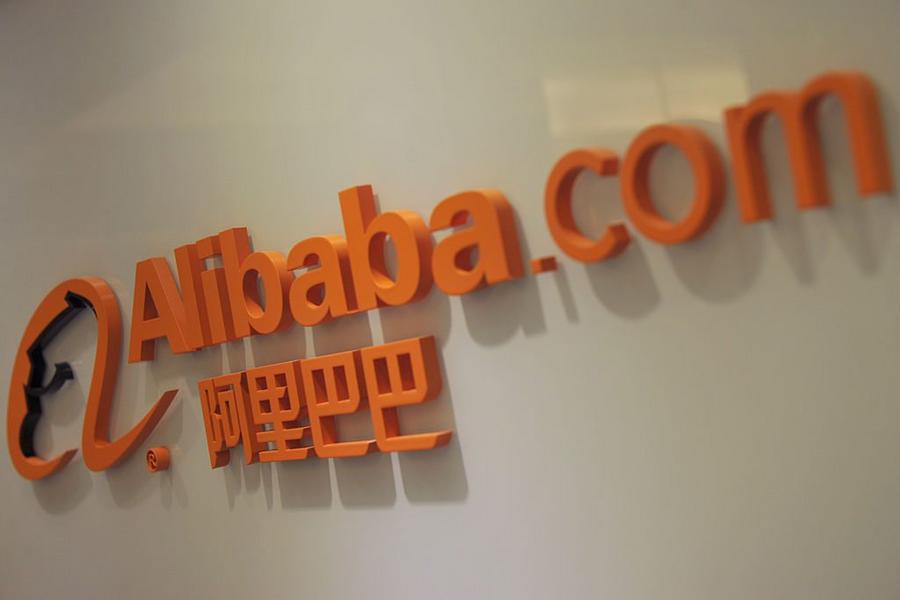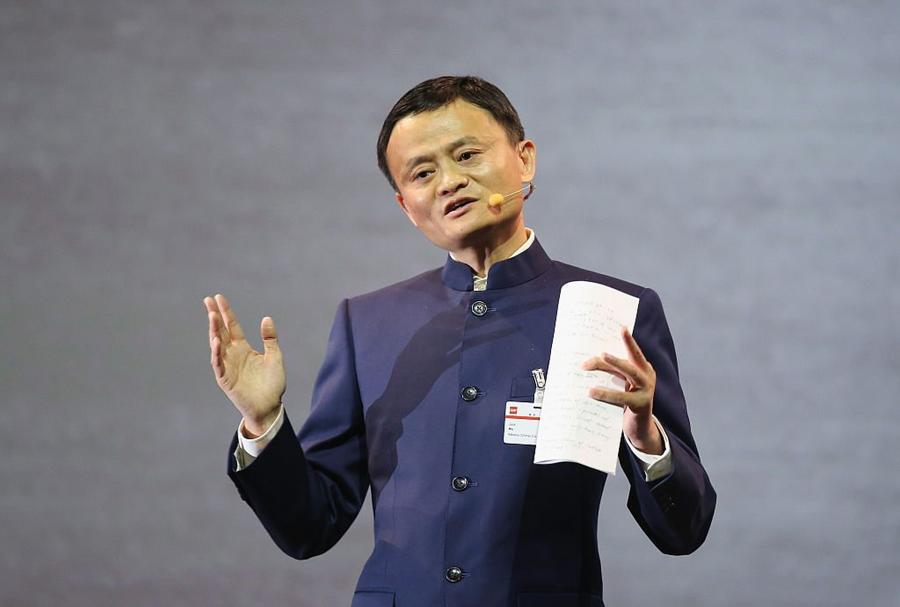On Thursday September 18th, a Chinese company that most Americans have probably never even heard of is expected to have the largest Initial Public Offering (IPO) of all time. Even if you are one of the few Americans who has actually heard of Alibaba.com, it's a safe bet you've never been on the site before. So how is it possible that this seemingly random Chinese company is about to have the largest IPO ever? An IPO that is expected to raise $24 billion dollars, and give the company a market cap at $150 billion on the low end, and $220 billion on the high end… right out of the gate?! Let's take a look at this behemoth e-commerce empire. What is Alibaba used for by average consumers, how is it changing the world, and why does this IPO have companies like Amazon and eBay shaking in their boots?

Aaron Tam /AFP/Getty Images
What Is Alibaba.com?
As crazy as this might sound for people who are hearing the company's name for the first time, Alibaba.com happens to be the largest commerce site on the planet. In terms of both active shoppers (289 million) and total amount of value exchanged per year ($300 billion), Alibaba is bigger than both eBay and Amazon.com COMBINED. And speaking of those two companies, in case you're wondering what Alibaba actually does, a very simplified answer is that it's a hybrid of eBay, Amazon, Google shopping, the Yahoo homepage and Paypal (which is owned by eBay). The Alibaba Group operates commerce platforms that power shopping search engines, cloud-based computing, payment processing services, web portals and much much more.
Alibaba.com's slogan is "Global trade starts here". A more realistic slogan might be "Hey, if you live outside of China and you want buy something from China, or have something made in China, Alibaba will help you do that, and make sure you don't get screwed."
Need a new computer? You can log on to Alibaba and buy a Lenovo laptop, exactly like you would on Amazon. Getting married to a plus-sized woman and can't afford the $2000 price tag at your local dress boutique? The Suzhou City Haosijie Wedding Dress Co offers plus-sized dresses that can be shipped around the world, for exactly $189 dollars. These are probably the type of transactions most Americans will easily understand. But it doesn't stop there. Here are some other not-so-typical products you can buy on Alibaba:
For $50,000 you can buy a 10-ton capacity waste recycling plant. For $8000, you can buy 20 tons of copper alloy. You can buy bee-keeping equipment, a forty foot container of white-shell eggs, 100 logs from Thailand, 25 metric tons of frozen beef tongue or 1000 sheep from Moldova.
You get it. There's a lot of weird stuff on there, in very weird quantities. But that's not all you can do on Alibaba. Let's say you don't want to buy something, you want to have something MADE in china. For example, let's say I just drew up plans for a working flux-capacitor for my DeLorean and I want to mass produce ten thousand units. I can upload my project requirements directly to Alibaba and receive bids from manufacturers in China with the factories, laborers and materials to make time-traveling dreams come true for me and 9,999 of my friends/customers.
But the real value Alibaba brings is twofold. Number one, Alibaba clearly opens up the massive Chinese commerce and manufacturing market to the global economy. Number two, Alibaba serves as the intermediary in the middle of every transaction. The company vets all suppliers, vendors and sellers so you won't get screwed. More than that, Alibaba also holds all payments in escrow until each party is satisfied with the final product/transaction. This simple step has made westerners, who are traditionally nervous about China, much more comfortable with dipping their toes into these lucrative new markets. For being the middle man, Alibaba charges a fee.
How Much Money Does Alibaba Make?
A lot. Unlike many American companies that produce no revenues yet are still somehow worth tens or hundreds of billions of dollars (Twitter, SnapChat, WhatsApp… even Amazon), Alibaba makes a ton of money. In 2013, Alibaba earned roughly $4 billion in profits off $7.5 billion in revenues. By comparison, in 2013 Facebook earned $1.5 billion in profits off $7.8 billion in revenue.
Understanding Just How Big This IPO Could Be:
When Twitter went public in November 2013, the company raised $2 billion and ended its first day of trading with a market cap of roughly $24 billion. When Facebook went public in May 2012, the company raised $16 billion and ended its first day of trading with a market cap of roughly $100 billion. When Alibaba goes public, it's expected to raise a minimum of $24 billion. By the end of the first trading day some analysts expect the company to have a market cap of $220 – $250 billion.
If you total up all the money that has been raised from IPOs in the first 9 months of 2014, you'll get $47 billion. Alibaba will probably raise more than half that amount in one day.
If Alibaba succeeds at raising $24 billion, it will be the largest IPO of all time, surpassing the $22.1 billion that was raised by the Agricultural Bank of China back in 2010. As of this writing, here are the top 6 IPOs of all time and how much they raised:
#1: Agricultural Bank of China (2010) – $22.1 billion
#2: Industrial and Commercial Bank of China (2006) – $21.9 billion
#3: American International Assurance (2010) – $20.5 billion
#4: Visa Inc. (2008) – $19.7 billion
#5: General Motors (2010) – $18.15 billion
#6: Facebook (2012) – $16 billion

Alibaba Founder Jack Ma / Sean Gallup/Getty Images
A Quick Note About IPOs:
When we say that Facebook raised $16 billion in its IPO, not all of that money actually goes to the company. In Facebook's case, the company itself only received $5 billion. In Alibaba's case, the company will only receive $7.7 billion for itself out of the $24 billion. The rest of the money goes to early Venture Capital investors and a bunch of Investment Banks. Here's a very simplified explanation of how an IPO works:
Let's pretend a company called "Celebrity Net Worth Inc" wants to go public. CNW goes out and hires a group of Investment Banks to walk them through the process and sell the company to potential big investors. The banks and CNW then work together to figure out how many shares will actually be offered to the public. Let's pretend CNW has 100 million total shares and is going to make 15% (15 million) available for regular people to buy on sites like eTrade or ScottTrade. Before going public, the investment banks essentially offer to pay CNW a guaranteed flat amount of money for those 15 million shares. In this example, let's pretend that the banks offer CNW $15 million (valuing each share at $1). CNW accepts the money and is happy to have the guaranteed cash to spend on whatever it pleases to grow the business (acquisitions, new employees, private jets to Turks and Caicos).
The banks basically now own the right to sell those 15 million shares at whatever price they can get on the IPO day. The downside risk is that when the company goes public, no one wants to buy any of the shares. When the company goes public, the banks might only be able to sell their shares for $0.50. If that happens, the banks take a big loss. CNW feels embarrassed, but at least it still got paid up front. On the other hand, if after debuting, everyone in the world is chomping at the bit to get some of those hotcake CNW shares, maybe the banks sell their stakes for $5 a share, or $10 a share. The banks get to pocket the difference from the $1 they paid.
Generally speaking, it's considered slightly impolite for the banks to make TOO MUCH money off an IPO. That would mean the banks way undervalued the company, and way underestimated demand. It happens periodically, but it's not encouraged and will cause future companies looking to IPO to potentially hire different banks to get a better deal.
Who Gets Rich Off Alibaba's IPO?
First and foremost, company founder Jack Ma. Assuming Alibaba Group goes public at a $150 billion market cap, Jack will be left with a $22 billion personal fortune. That amount will easily make him the richest person in China. Yahoo actually owns around 23% of Alibaba and is planning to sell $7.6 billion worth of shares (1/4th of their total shares) on the IPO day. The remaining lottery winners are made up of a group of banks and venture capital firms.
So there you have it. That's everything you need to know about Alibaba.com and its upcoming IPO. Now if you'll excuse me, I have to prepare my apartment for the arrival of 1000 Moldovan sheep.
/2014/09/GettyImages-465008570.jpg)
/2016/07/GettyImages-545300720.jpg)
/2020/11/GettyImages-1057636520.jpg)
/2018/09/jack.jpg)
/2020/10/GettyImages-455720256.jpg)
/2020/11/GettyImages-474060516.jpg)
/2013/06/Wink-Martindale-1.jpg)
/2013/10/Monty-Hall-1.jpg)
/2021/12/peter.jpg)
:strip_exif()/2020/06/taylor.png)
/2014/07/Ana-Ivanovic.jpg)
/2019/12/nc.jpg)
/2010/11/Sara-Bareilles.jpg)
/2019/02/jalex.jpg)
/2014/04/GettyImages-55325324.jpg)
/2013/01/Al-Jarreau.jpg)
/2020/03/steve-wynn.jpg)
/2020/11/Jasmine-Sanders.jpg)
/2020/10/cate.jpg)
/2022/01/audra.jpg)
/2013/01/Jude-Law.jpg)
/2021/01/alec-guinness.jpg)
/2023/10/elaine-wynn.jpg)